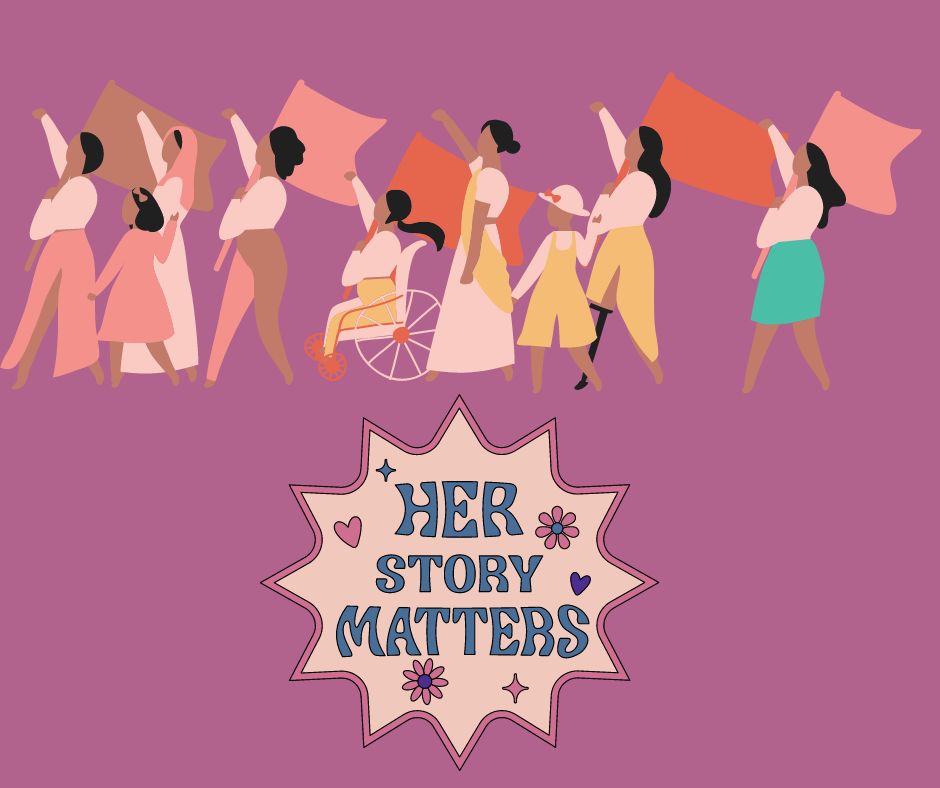Dear editor,
I’d really like to publish my essay on transgender struggles of youth in school. I think that it would help better spread awareness around school.
Transgender students are struggling. 82% of transgender youth debate suicide and 40% have attempted it. Being transgender affects every aspect of a student’s life, making everything seem harder for them. They struggle academically, have trouble focusing and they debate even coming to school because of how badly their peers treat them. They have a lot of struggles mentally, from constant bullying to possibly not having a safe home life. Transgender kids also struggle a lot with social aspects of school, like struggling to make friends or get treated as equals by the teachers. It can go as far as physical health concerns as well, for ftm (female to male) kids, binders can be a real struggle, not to mention how high suicide and self harm rates are among them.
According to Aylin Cook, about one third of transgender kids dropout of high school. That means that about 1000 kids a year dropout of high school because they’re treated horribly for being themselves. (Austin; Suicidality Among Transgender Youth Elucidating the Role of Interpersonal Risk Factors) It’s clear how hard it is for transgender kids to get their work done in classes, and it really affects their grades. They have to spend whole periods of their day being bullied, while all they’re doing is trying to get their work done. Brandon Scott, a transgender adult while talking about his school experience says, “I didn’t want to be there. I didn’t feel included. There, I was the problem.” (Scott 3). His quote was chosen because he talks about how isolated he felt and how in the article he says that he struggled a lot in school because of that. Most kids’ grades go down when they’re struggling, so for transgender kids it’s even harder to maintain high grades when they are constantly being bullied.
A lot of transgender kids aren’t accepted at home, making it an unsafe environment. Not being safe at school or home can make it incredibly hard to keep their grades up. Fabliha Anbar came out to talk about how having to hide yourself at home and how it can be can be extremely detrimental, “Having to go home and act a certain way 24/7 is a means for survival. That can be straining emotionally and extremely damaging.” (Venkatraman; For LGBTQ youth, home might not be a safe place to self-isolate). Or for kids just trying to get their work done at school, going home to an unsafe environment can prevent them from getting any homework done. If they can’t get work done at school and then they go home and are also unable to work there, there’s no way for them to pass their classes. At both home and school trans kids struggle to get their studies done and it really affects how they do in school. Kids are struggling, but teachers just pass it off saying they should just focus more, but it’s really hard to focus when all aspects of their lives are constantly overrun by the beliefs and judgment of others.
Mental health is a really big issue among teens, especially teens who are part of a minority. According to the CDC 9.4% of children 13-17 are diagnosed with anxiety and 4.4% of the same age range are diagnosed with depression. That’s 8.5 million kids. (CDC) An article on Jama talks about how transgender individuals are affected mentally by the world around them. It reads, “Transgender and nonbinary (TNB) youths are disproportionately burdened by poor mental health outcomes, including depression, anxiety, and suicidal ideation and attempts. These disparities are likely owing to high levels of social rejection, such as a lack of support from parents and bullying, and increased stigma and discrimination experienced by TNB youths” (Tordoff, Wanta and Collin). Kids can’t find anywhere they can be themselves, not at home, school, or even in clubs. If they can’t find a place to express themselves, they might turn to worse options. Kids could feel hopeless, and that’s why suicide rates are higher in transgender kids.
School computers are made to flag any content that could be potentially harmful for kids to read, but they abuse that power. They can block anything that they don’t align themselves with. An LGBTQ+ reporter Orion Rummler writes, “At least 11 states have passed laws to censor discussion of LGBTQ+ issues in public schools, eliminating the potential for queer students to see themselves in their education.” (Rummler; States are banning LGBTQ+ subjects in schools). Plenty of resources are blocked for kids through the computers, preventing them from finding information they can trust. Half the articles about suicide rates in transgender kids are blocked because the school doesn’t believe them to be safe. Kids are sheltered from how much their bullying affects these individuals. All school is doing is isolating the kids that stand out. They prevent them from finding online resources and don’t offer any help to them.
People talk about how it’s 2024 and many people are more accepting. Sure that’s true, to an extent. Yet, trans students still don’t feel safe going to school. Kids can be mean, especially when they know what bothers a person. They will go out of their way to find a trans kid’s birth name or even go as far to chase them through the hallways. A group of people took the time to really look into the safety of transgender kids in school, they said, “Transgender students experiencing high levels of harassment were more likely than other transgender students to miss school for safety reasons (verbal harassment based on sexual orientation: 64% vs. 25%; gender expression: 56% vs. 32%; gender: 68% vs. 38%)” (Greytak, Kosciw, and Diaz; The Experiences of Transgender Youth in Our Nation’s Schools). Kids constantly harass and bully transgender kids for who they are. They’re scared to come to school because of the harassment and bullying that they experience on a day to day basis. School boards are now telling teachers to out transgender kids to their parents. By doing this, they are now putting kids in very dangerous situations at home if their parents aren’t supportive. When Stephanie Camacho-Van Dyke, the Director of Advocacy and Education at the LGBTQ Center of Orange County in California found out about this, she said, “When a school does this, do they have an idea like who they’re potentially outing a student to? There is probably a reason why that youth has not come out to their parent at that time. It should be up to that young person to decide when they want to and when they’re ready to do so.” (Burga; California Is the Latest State Where a School Board Is Requiring Staff to Potentially Out Trans Kids). School boards are now ready to risk students’ safety because of their gender identities. They don’t know if kids are in abusive homes, and they don’t know if kids will be thrown out over this. There is a 100% chance that it’ll happen to at least one kid, and they’re fine with that.
Transgender kids don’t feel safe in schools. They are bullied by their peers and can’t even trust their teachers to help them without fear of being outed to their parents. Transgender kids struggle a lot with their bodies. They deal with things like pain from transitioning, self harm, and they have scarily high suicide rates. For female to male transgender kids (ftm), the most common tool for them is a chest binder. It’s like a very short tank top that binds their chest. The problem is that it causes a lot of pain and strain on the body. A genderfluid student at Altoona High School named Griffin Hollen says, “Binding is an intense method of masculinization in non-binary and transgender people. It’s not unhealthy, but it can be if it’s not practiced correctly and is more often than not uncomfortable in one way or another. These compressing pieces of clothing can obstruct breathing, cause skin issues and even obstruct the formation of ribs if not done correctly. However, binding is just one method of masculinization that transgender people can use to provide themselves a more physically accurate depiction of their gender identity. Other methods include HRT, voice therapies, facial or skeletal reconstruction, and gender therapy.” (Griffin Hollen, quote from a friend).
Transgender kids struggle with body dysphoria, meaning they feel uncomfortable in their own bodies. Chest binders are a great tool, but kids aren’t formally taught how to use them. So because they aren’t correctly informed, it can lead to them overusing and accidentally hurting themselves. Transgender kids struggle more and have difficulty assessing and receiving health care than cisgender (identifies with gender at birth) kids and adults. State Senator Zach Wahls spoke up at a meeting about transgender health care in kids. “Senator, kids are going to kill themselves because of this law. Iowa children will die if this becomes law. That’s what will happen” (Bill banning minors from getting gender-affirming care one step closer to becoming law). Not only is it hard for them to receive healthcare, there are bills that are actively being passed in an attempt to prevent kids from receiving the proper healthcare. A lot of adults also want to prevent both transgender kids and transgender adults from receiving gender affirming care, which will make them feel more comfortable in their own skin. I think more people should be informed on the way that transgender health care is being handled. The bills that are attempting to get passed will take away the one thing that our country is supposed to stand for, freedom.
Just because it’s 2024 doesn’t mean that transgender kids are treated the same way as cisgender kids in both school and outside of school. Studies have proven that they struggle more in schools, are bullied more than average, and have higher rates of suicide. Something needs to be done to help them. Whether it’s creating a support group, being there for them, or helping stop the bills being pushed against them. Giving trans kids the resources to help them and make them feel less alone will greatly improve their mental and physical health. “Trans people are extraordinary, strong, intelligent, persistent and resilient. We have to be. And we will not stand for the picking and choosing of rights. We still have hope.” (Grace Dolan-Sandrino; Washington Post).
Works Cited
Austin, et, al “Suicidality Among Transgender Youth Elucidating the Role of Interpersonal Risk Factors.” PubMed, 2020 Apr 29, https://pubmed.ncbi.nlm.nih.gov/32345113/. Accessed 29 Jan. 2024.
Venkatraman, Sakshi. “For LGBTQ youth, home might not be a safe place to self isolate.” NBC News, May 3, 2020. https://www.nbcnews.com/feature/nbc-out/lgbtq-youth-home-might-not-be-safe-place-self-isolate-n1181721. Accessed 29 Jan. 2024
Tordoff, et, al “Mental Health outcomes In Transgender and Nonbinary Youths Receiving Gender-Affirming Care.” JAMA Network Open. Feb 25, 2022. https://jamanetwork.com/journals/jamanetworkopen/fullarticle/2789423. Accessed 29, Jan. 2024.
“Anxiety and Depression in children: get it right.” CDC. March 8th, 2023. https://www.cdc.gov/childrensmentalhealth/features/anxiety-depression-children.html. Accessed 29, Jan. 2024.
Rummler, Orion. “States are banning Lgbtq+ subjects in schools. Most students say they were never taught about it anyway.” The 19th. August 18th, 2023. https://19thnews.org/2023/08/lgbtq-issues-curriculum-bans-schools-survey/ 29, Jan. 2024.
Burga, Solcyre. “California Is the Latest State Where a School Board Is Requiring Staff to Potentially Out Trans Kids.” TIME. September 20th, 2023. https://time.com/6316006/school-boards-policies-outing-transgender-students/ 29th, Jan. 2024.
Minta, Molly. “‘Kids will kill themselves’: Providers of gender affirming care say anti-trans bill will be a direct cause of suicide.” Mississippi Today. February 8th, 2023. https://mississippitoday.org/2023/02/08/kids-will-kill-themselves-providers-of-gender-affirming-care-say-anti-trans-bill-will-be-a-direct-cause-of-suicide/ 29, Jan. 2024.
“Bill banning minors from getting gender-affirming care one step closer to become law.” Iowa News Now. March 8th, 2023. https://cbs2iowa.com/news/local/bill-banning-minors-from-getting-gender-affirming-care-one-step-closer-to-become-law 29, Jan. 2024.
Rider, et, al. “Health and Care Utilization of Transgender and Gender Nonconforming Youth: A Population-Based Study.” Pubmed. March 2018. https://www.ncbi.nlm.nih.gov/pmc/articles/PMC5847087/ 29, Jan. 2024.







